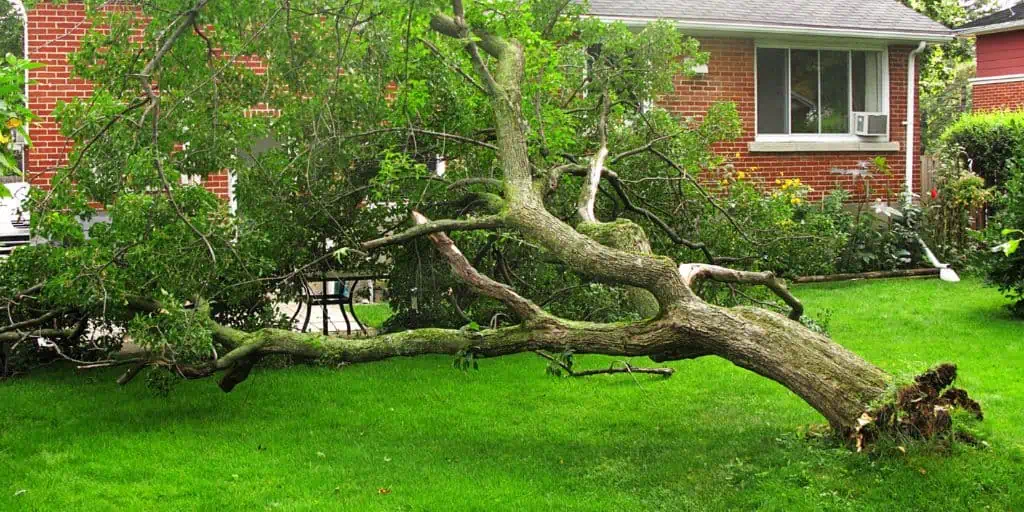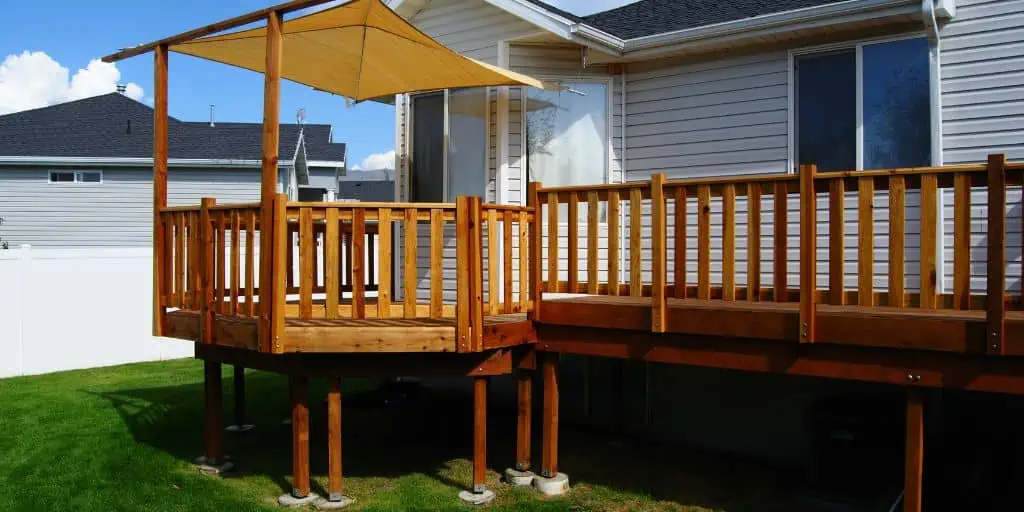What Is Encroachment?
REtipster does not provide legal advice. The information in this article can be impacted by many unique variables. Always consult with a qualified legal professional before taking action.
Shortcuts
- Encroachment occurs when a whole structure or part of a structure is built in a way that crosses property lines and intrudes into someone else’s property.
- An encroachment can occur naturally, such as branches of a tree extending to a neighbor’s property, but most of the time, it’s the result of carelessness from the encroaching neighbor.
- An amicable, out-of-court settlement between neighbors is the ideal way to deal with encroachment.
- There is legal recourse to an encroachment, including a quiet title action, but this is the last resort to settle an encroachment dispute because of the stress, cost, and time involved.
How Does Encroachment Happen?
Encroachment happens in real estate when extending structures violate the property lines of another property, intentionally or otherwise[1]. This violation typically occurs when a neighbor builds or extends some features onto another owner’s property.
Encroachments can take many forms, such as a fence, building structure, or deck that extends beyond property boundaries, or a retaining wall that extends onto a neighbor’s property.
Deliberate encroachment is often committed on unattended properties or vacant lots, but some instances of intrusion are unintentional and can be unnoticed. This usually happens on greeneries or trees extending into another property[2].
Poor planning or carelessness frequently results in unintended encroachment. This can happen, for example, when a fence or driveway is built without finding the lot line first[3].
Types of Encroachment
The types of encroachments can be determined based on a graduating scale of significance[4].
Minor Encroachment
This situation is typically negligible and can be easily resolved between two neighbors. The intrusion here could be as simple as gardens or shrubs that have grown beyond a homeowner’s property line.
Major Encroachment
Any construction overlapping another property falls under this category. A similar red flag arises if an overhanging tree branch falls off and causes damage or injury within an adjoining property.
However, tree leaves falling onto a neighbor’s land are not considered a nuisance or encroachment. This situation is considered a “natural occurrence.” Removing the fallen leaves becomes the property owner’s responsibility where the detritus landed.
Notably, an easement for lighting is not provided for under U.S. law. Thus, a tree that blocks the view or shades another property is not considered a nuisance[5].
Structural Encroachment
Structural encroachment occurs when a property owner builds a structure partly or wholly on a neighboring private or public property. The structural encroachment thus involves not only another private owner but also the local government.
A balcony or upstairs deck partially overhanging on a neighboring property constitutes structural encroachment. Sheds or garages intruding into a neighbor’s lot may also fall under this type of encroachment.
How to Address Encroachment
Legal experts urge property owners to take a conservative approach in dealing with encroachment, especially on the part of the aggrieved party. This stance is more likely to deliver positive results. On the other hand, an aggressive start can trigger a defensive reaction from the encroaching party.
Here are suggested steps to talk to an encroaching neighbor[6]:
- Talk to the encroaching neighbor about the problem in a friendly manner. Temper any anger and work on the assumption that the neighbor’s encroachment was not deliberate. Have an appropriate remedy in mind before talking with the neighbor.
- Present a certified land survey to the neighbor as evidence of the encroachment. Ideally, the encroaching neighbor has to share the land survey cost, if possible.
- Ask the encroaching neighbor to buy the portion of the land in question. If the neighbor agrees, have a real estate attorney draft an agreement and property deed.
- If the steps above yield negative results, get an attorney to prepare and send a property encroachment letter to the neighbor. The letter should include the points below[7]:
- Description of the violation with an attachment of a plat map or survey pinpointing the disputed property lines.
- Statement requesting the removal of the encroaching structure within a reasonable time, e.g. 30 days.
- Suggest, if relevant, other solutions to the issue. These can include the possibility of selling the encroached-upon area to the neighbor or a conditional permit to use it.
- An invitation for further talks on the encroachment problem.
- A warning on going to court if matters are not solved.
Legal Recourse for Encroachment
Taking an encroachment case to court should be the last resort for property owners. Such a civil case can be stressful between neighbors, not to mention costly and time-consuming.
In many cases, the property owner who filed an encroachment suit needs to prove the following:
- The complainants actually own the property being encroached upon (a court case called quiet title action).
- The respondent neighbors’ use of the land is improper (a court case called ejectment action[8]).
BY THE NUMBERS: A third of U.S. civil cases take over a year to resolve.
Buying and Selling Property With Encroachment
The sellers of a property are obligated to disclose any issues that may influence the purchase of property and encroachment is one of these issues[9]. A prospective buyer’s real estate agent or lawyer will usually demand an explanation from a seller if an issue like existing encroachment does not appear on the seller’s disclosure statement.
An encroachment issue poses a big disadvantage to a prospective seller if the issue is not resolved before the sale. The intrusion into the sales-listed property is likely to have a significant negative effect on property value[10].
In most cases, even potential encroachment issues can be a dealbreaker in a real estate sale.
Sources
- Chen, J. (2021.) What Is Encroachment? Investopedia. Retrieved from https://www.investopedia.com/terms/e/encroachment.asp
- Johnson, J. (2022.) Encroachment: What It Means in Real Estate. Rocket Mortgage. Retrieved from https://www.rocketmortgage.com/learn/encroachment
- Reilly, J. (2018.) Encroachment VS Encumbrance. Real Town. Retrieved from https://www.realtown.com/blog/Encroachment-vs-Encumbrance
- Dehan, A. (2021.) Encroachment In Real Estate: What Is It And What Can You Do About It? Quicken Loans. Retrieved from https://www.quickenloans.com/learn/encroachment
- Stimmel, Stimmel & Roeser. (n.d.) Encroaching Trees: Who Has The Right To Do What? Retrieved from https://www.stimmel-law.com/en/articles/encroaching-trees-who-has-right-do-what
- Kelly Legal Group.(2020.) How to Deal with Neighbors Encroaching on Your Property. https://www.kellylegalgroup.com/blogs/property-encroachment-disputes-with-neighbors
- Seidel, M. (2018.) How to Write an Encroachment Notice. Legal Beagle. Retrieved from https://legalbeagle.com/8776075-write-encroachment-notice.html
- Find Law. (2018.) What Can You Do About an Encroachment? Retrieved from https://www.findlaw.com/realestate/neighbors/what-can-you-do-about-an-encroachment.html
- McMillin, D. (2022.) How to Resolve a Property Line Dispute before Selling Your Home. Bankrate. Retrieved from https://www.bankrate.com/real-estate/sell-home-with-property-line-dispute/
- Pulgini & Norton. (n.d.) Encroachments. Retrieved from https://www.pulgininorton.com/encroachments.html













